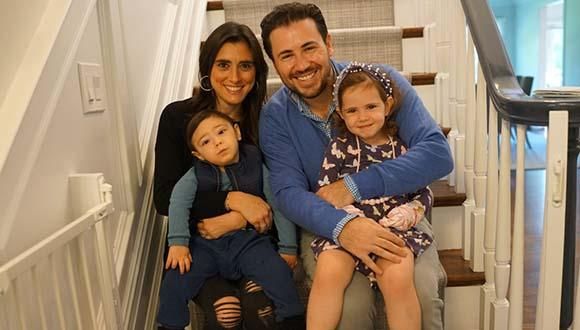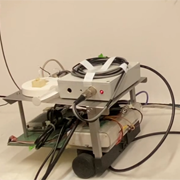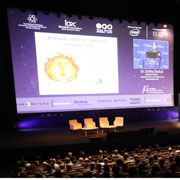The Quest for A Lifesaving Cure
Innovative technology of BLAVATNIK CENTER for Drug Discovery may save boy suffering from rare neurological syndrome
In December 2019, the BLAVATNIK CENTER for Drug Discovery at Tel Aviv University was presented with a challenge which demanded flexibility and thinking outside the box.
2015 Kadar Family Award recipient Prof. Ehud Gazit, Founder and Academic Director of the BLAVATNIK CENTER for Drug Discovery at Tel Aviv University, received an email from Scott Reich, a very worried father. Scott's son Eli, only eight months old at the time, had just been diagnosed with the ultra-rare FOXG1 syndrome, a neurological disorder that severely impacts brain development. With only about 700 known cases worldwide, predominantly children with severe disabilities, this devastating condition attracts little research and has no cure.
Determined to save his son, Scott searched all over the world for experts who could develop a treatment for the rare syndrome. The advice and recommendations of leading scientists and health professionals led him to the BLAVATNIK CENTER at TAU in Israel, which specializes in the field of drug repurposing: repurposing FDA-approved medications and other safe substances to help people with rare diseases, all too often overlooked by the big pharmaceutical companies.
Dr. Eddy Pichinuk, Head of the HTS and Biological Assays Unit at BLAVATNIK CENTER, whose team was already conducting research for several other families affected by rare diseases, willingly accepted the new challenge.
Dr Pichinuk and his team quickly obtained a sample of Eli's cells, which had been deposited in a biobank for rare disease biosamples, and established a personalized drug-screening platform to test these cells against known, safe, FDA-approved molecules that could be repurposed. Essentially, they were looking for any drug (originally developed for some other purpose) that would increase the amount of FOXG1 protein in Eli's brain, making up for the damaging deficiency caused by the mutation. The researchers were well aware that this might be Eli's only hope for a more normal life: once a safe and effective drug is identified, it can be repurposed to offer Eli and others like him compassionate treatment.
"Our screening platform is based on a luminescent protein, expressed in fireflies, that replaces the faulty protein in Eli's cells," explains Eddy. "We are screening a library of about 7,000 FDA-approved substances, initially developed to treat a range of diseases, such as cancer, psychiatric disorders, or various inflammatory syndromes. By testing each drug's interaction with the marked protein in Eli's cells, we have so far discovered several potentially helpful drug candidates. As we begin to see the light at the end of the tunnel, we continue to search for additional drugs."
In the next stage, the researchers will use advanced methods of genetic engineering to transform skin samples from Eli and his parents into stem cells and then into neurons. Ultimately, they will test the effect of the chosen drugs on Eli’s neurons. Determined and optimistic, they aim to restore more normalized brain development.
Thinking Outside the Box
Dr. Avi Raveh, the BLAVATNIK CENTER's Chief Scientific Officer, explains that the Center offers a unique research approach, applying personalized medicine methodology to rare diseases. "We respond to requests from families all over the world, often at the last moment before they lose hope. Unlike large research institutions, we resemble a small and dynamic startup, eliminating or speeding up any bureaucracy and getting right down to the crux of the challenge. In Eli Reich's case, with the time window for brain development closing fast, this flexibility is crucial. I truly hope that we can help him."
"Coming to Israel and working with the BLAVATNIK CENTER has been a good experience so far," says Scott. Thanks to the Israeli spirit of collaboration, researchers at the Weizmann Institute of Science and Ben-Gurion University of the Negev have also been recruited to join the mission of saving Eli. He remains hopeful: "When we heard the devastating diagnosis, I said to my wife Ilissa: 'We have to go to Israel. In Israel, we'll find the know-how, experience and out-of-the-box thinking that we need.' Reaching out through the American Jewish community and our Israeli friends, we got in touch with the BLAVATNIK CENTER for Drug Discovery, and immediately felt at home. The team is very creative, they work fast and are sincerely dedicated to finding a treatment for FOXG1 syndrome – they’re not just looking to publish a paper in a scientific journal. For us, this genuine commitment is extremely important. The BLAVATNIK CENTER team is doing everything they can so that Eli and others with FOXG1 Syndrome may live and hopefully enjoy more productive lives."
For more information about FOXG1 and Eli Reich, please visit BELIEVE IN A CURE






